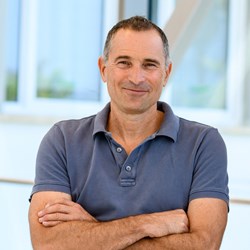
Researchers in Prof. Ido Amit's lab at the Weizmann Institute of Science have identified a gene that acts as a "master switch" to reprogram macrophages, a type of immune cell, from cancer-promoting to cancer-eradicating. Using advanced gene editing, single-cell, and AI technologies, the team discovered how tumors manipulate macrophages to protect themselves and promote growth. This breakthrough has led to the development of a new therapy, which has shown promising results in mice with bladder tumors.
Macrophages are highly versatile cells capable of performing various functions, including promoting anticancer inflammation and alerting the immune system to tumor cells. Tumors typically convert macrophages to support their growth by suppressing other immune cells and encouraging blood vessel formation. The new study took a nuanced approach to understanding macrophage functions, identifying 120 genes involved in their protumor activities.
This discovery opens the door to innovative cancer therapies by reprogramming macrophages to their anticancer state, potentially improving patient outcomes and offering new hope in the fight against cancer.
A full version of this article can be found here.


